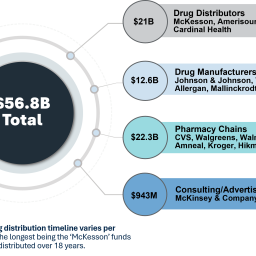

Jennifer Fisher
Jennifer Fisher serves as a Managing Director at McAllister & Quinn. She works with clients in the healthcare sector to assess their organizational needs and assist them in finding funding opportunities that align with their internal priorities and goals.
What Hospitals and Health Systems Need to Know
Almost half (48%) of rural hospitals operated at a financial loss in 2023, with 92 rural hospitals shuttering within the past decade due to an inability to continue to provide inpatient services, according to the American Hospital Association.
Both Medicaid and rural hospitals are critical resources sustaining the health and wellbeing of small communities and are heavily intertwined, with over 16 million Medicaid beneficiaries living in rural communities.
The Rural Health Transformation Program, often referred to informally as the Rural Health Fund, was created in the Senate version of H.R. 1 (One Big Beautiful Bill Act) to partially offset financial burdens that rural healthcare providers have been projected to face due to cuts in Medicaid and Medicare funding in the budget reconciliation package. The program was accepted in the House and included in the final bill that was signed into law on July 4, 2025. The program will be administered by the Centers for Medicare and Medicaid Services (CMS).
The Rural Health Fund provides funding and technical assistance to states to develop and implement rural health transformation plans to improve access to care, quality of services, financial sustainability, and address social determinants of health in rural areas. Total funding for this program is marked at $50 billion, spanning fiscal years 2026 to 2030.
What Are the Impacts of H.R. 1 Cuts on Rural Hospitals?
In rural areas that rely heavily on Medicaid and Children’s Health Insurance Program (CHIP) funding, hospitals and health systems could see a 21% decrease in Medicaid reimbursement due to provisions within H.R. 1, further straining many rural health systems that already have negative or razor-thin operating margins.
While funding through this program equates to only about 37% of the loss in Medicaid funding in rural areas that is anticipated in H.R.1, this program can help maintain essential services in rural communities. However, reductions in federal Medicaid spending would occur primarily after fiscal year 2030, pointing to a need for further legislation to support acute health system needs after the Rural Health Fund has been depleted.
CMS Awards Rural Health Funds to All 50 States
State Processes Vary for Allocation to Sub-Recipients and Community Partners
On December 29, 2025, CMS announced awards, with all 50 states awarded first-year funding under RHT Program, ranging from $147M to $281M. Specific funding allocations per state are listed in the CMS press release, with Texas receiving the highest first year award amount ($281,319,361) and New Jersey receiving the least at $147,250,806. States are now in the process of finalizing their individual cooperative agreements. States that have decided to issue competitive solicitations for their portion of the total funding allocation will then begin the process of releasing requests for proposals (RFPs) for competitive subrecipient funding.
Please contact us if you have questions about what your state is planning on doing to improve rural health in your community reach out to us at information@jm-aq.com.
McAllister & Quinn Quick Talk: Rural Health Transformation Fund Exclusive Webinar
Rural Health Transformation Program: What Hospitals and Health Systems Need to Know
McAllister and Quinn’s on-demand webinar, “Rural Health Transformation Program: What Hospitals and Health Systems Need to Know,” is available for viewing at your convenience. The webinar is part of McAllister & Quinn Healthcare Practice’s Quick Talk series, an on-demand webinar series that serves to provide timely, relevant information in a quick and easy to understand format. Through this 9-minute webinar, McAllister & Quinn Healthcare Practice Managing Director Jennifer Fisher offers key insights on the Rural Health Transformation Fund program purposes and requirements.









